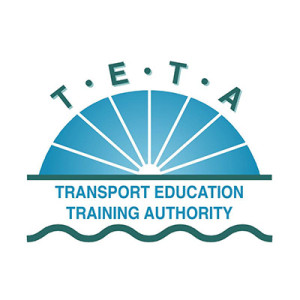Navigating the Job Market: Industry Trends and Insights
The job market is a dynamic and ever-changing landscape. As industries evolve and new technologies emerge, job seekers must stay informed about the latest trends and insights to successfully navigate their career paths. In this article, we will explore some of the key industry trends and provide valuable insights to help individuals make informed decisions in their job search.
- Emphasis on Digital Skills: In today’s digital age, the demand for professionals with strong digital skills is on the rise. As industries increasingly rely on technology, job seekers should focus on developing skills such as coding, data analysis, digital marketing, and cybersecurity. Acquiring these skills can enhance employability and open up opportunities in various sectors.
- Remote Work and Flexibility: The COVID-19 pandemic has accelerated the adoption of remote work practices. Many companies have realized the benefits of a flexible work environment, and remote work is likely to remain a prominent feature of the job market. Job seekers should be prepared to showcase their ability to work remotely and adapt to virtual collaboration tools and platforms.
- Automation and Artificial Intelligence: Automation and artificial intelligence (AI) continue to reshape industries, affecting the nature of work. While some routine tasks are being automated, new job roles are emerging that require a combination of technical and soft skills. Job seekers should focus on developing skills that complement automation, such as critical thinking, creativity, and complex problem-solving.
- Sustainability and Green Jobs: Environmental sustainability is a growing concern globally. As a result, green jobs and sustainability-related roles are gaining prominence across industries. Job seekers interested in this field should consider acquiring knowledge and skills related to renewable energy, waste management, sustainable design, and environmental policy.
- Continuous Learning and Upskilling: Lifelong learning has become crucial in today’s job market. As technology evolves rapidly, individuals need to upskill and adapt to stay relevant. Employers value candidates who demonstrate a commitment to continuous learning and professional development. Online courses, certifications, and workshops are excellent resources for expanding knowledge and skills.
- Remote Hiring and Virtual Interviews: The hiring process has also adapted to the digital age. Remote hiring practices, including virtual interviews, have become commonplace. Job seekers should be comfortable with video interviews and be well-prepared to showcase their skills and experiences through virtual platforms.
- Soft Skills and Emotional Intelligence: While technical skills are essential, employers also prioritize soft skills such as communication, teamwork, adaptability, and emotional intelligence. These skills are valuable for collaborating effectively with diverse teams and navigating workplace challenges. Job seekers should highlight their soft skills on their resumes and during interviews.
- Diversity, Equity, and Inclusion: Companies are increasingly recognizing the importance of diversity, equity, and inclusion (DEI) in the workplace. Job seekers should seek out organizations that prioritize DEI and demonstrate their commitment to fostering an inclusive work environment. Emphasizing experiences and initiatives related to diversity and inclusion can make candidates stand out in the job market.
- Gig Economy and Freelancing: The gig economy is expanding, providing opportunities for individuals to work on a freelance or project basis. This model offers flexibility and autonomy, attracting many job seekers. Platforms that connect freelancers with clients have gained popularity, and individuals can leverage these platforms to find freelance opportunities aligned with their skills.
- Network and Personal Branding: Building a professional network and developing a personal brand is crucial for success in the job market. Job seekers should leverage social media platforms like LinkedIn to connect with professionals in their field, join relevant industry groups, and share their expertise. A strong network can provide valuable insights, mentorship, and potential job leads.
In conclusion, navigating the job market requires staying informed about industry trends and insights. Job seekers should focus on developing digital skills, adapting to remote work practices, and embracing automation and AI. Continuous learning, soft skills, and a commitment to diversity and inclusion are also crucial. By keeping up with these trends and insights, individuals can position themselves for success in a competitive job market and secure rewarding career opportunities.



